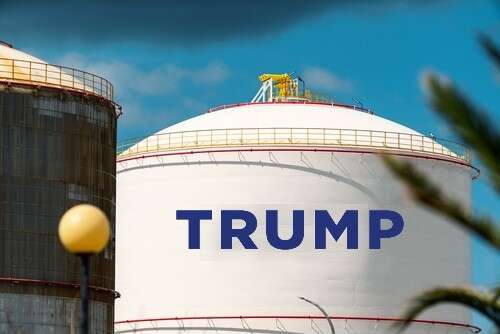
A recent US policy announcement is a sharp reminder of how crucial America is to global energy supply, and the geopolitics that surround it. On 26 January, Joe Biden declared a “temporary pause” on pending decisions regarding US exports of liquefied natural gas, or LNG. These exports were the reason Europe was able to stop importing Russian gas without widespread shortages and blackouts, and they remain fundamental to Europe’s energy security. They give America a new power over Europe, and a new question: what would Donald Trump do with it?

To be clear, this does not mean that Biden is cutting off or even reducing the supply of LNG from the US to Europe. The European Commission and the US Department of Energy discussed the “pause” in advance, and export projects that have already been approved are going ahead. But the delays in planning new exports in the years to come leave companies with fewer options. Canada is increasing its LNG exports, but the terminals are on its west coast, making them far more suited for export to Asia.
Qatari LNG, on which Britain is highly dependent, is typically sold under very long, exclusive agreements, which might make an importer dependent beyond 2030 or even 2050 — with implications for net zero plans — and prevent buyers from selling the gas on to third parties.
America’s LNG is sold with no such strings attached. This has been great for global energy security. Germany previously imported most of its gas from Russia, but the flexibility of US exports after Russia invaded Ukraine allowed Europe to cut off Vladimir Putin’s gas while keeping its lights on and boilers running. However, it’s not the greatest look for Biden, who — having been elected on bold promises to take action on the climate crisis and phase out fossil fuels — has presided over America’s rise to become the world’s biggest exporter of natural gas (US oil production has also reached record highs).
Henning Gloystein, director of energy, climate and resources at Eurasia Group, says there is “a heavy political angle” to the LNG pause, in that it gives Biden an opportunity to say that he is selecting only the greenest projects for approval. In reality, Gloystein says, most forecasts assume that only a minority of the currently proposed projects will eventually come online. The likely outcome of the current “pause” is that it introduces a year of “planning insecurity” for Europe before the next president is inaugurated and business continues as usual
Will Dunn is business editor of the New Statesman. He writes on a range of topics including inflation, housing, the Bank of England, the world of work and the cost of living crisis.
This article originally appeared as part of Spotlight in the New Statesman.






